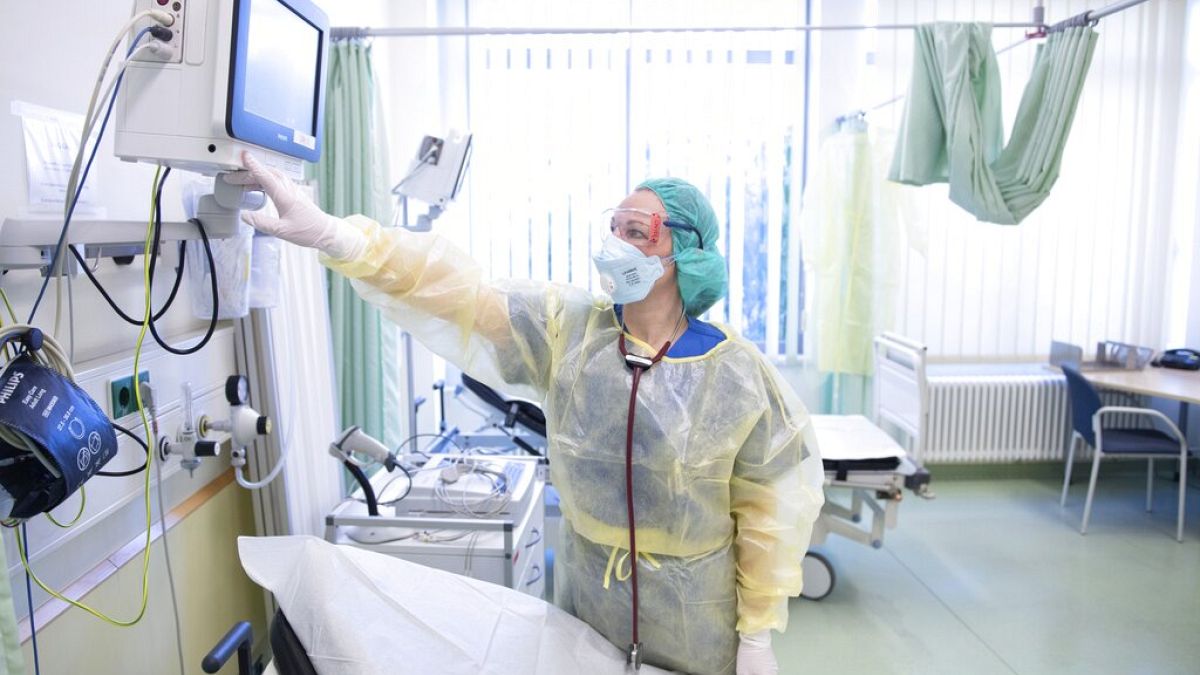Germany has been spared the death toll of its European neighbours - but for how long?
Germany may have been spared the high level of fatalities from coronavirus than Italy or Spain, but experts warn that the worst could still be to come.
"We are at the beginning of an epidemic," said Lothar Wieler, head of the Robert Koch Institute, at a press conference on March 25.
The serious issues of over-capacity in Italy and a lack of medical equipment in many other countries have served as a warning to Germany. Hospitals have been told to double their capacity of intensive care beds and ventilators, and the country - like many other nations - is under lockdown.
But not everyone is listening. Young people still meet friends in the parks of major German cities and retirees enjoy the sun in cafés on Düsseldorf's bustling Königsallee.
The situation has got many people asking: What needs to happen in order for Germans to take the threat of the coronavirus seriously?
Even in hospitals, there are concerns that this is not happening.
One midwife at a hospital in the Frankfurt area told Euronews that colleagues that had recently returned from skiing in Austria and were told that they should attend work, "as long as they show no symptoms". This despite the fact that one doctor's husband had tested positive for COVID-19.
Those who want to enter quarantine or self-isolation must take unpaid leave to do so.
"How should we stay healthy if we are constantly exposed to the danger?" asks the midwife, who wanted to remain anonymous.
Guidelines too have been confusing, she said, including how to deal with patients that test positive.
"Do you have to separate the child from the mother?" she said.
She and her colleagues initially had no answers to these questions when the case occurred earlier this week.
A doctor at a hospital in Heidelberg said that the nature of the job made keeping a distance from patients - some of which may have COVID-19 - difficult.
"There are protective suits for us, but there are still concerns about infection, and there is no such thing as absolute safety in direct contact with patients," he said.
Heidelberg University Hospital told Euronews that it was well prepared for an increasing number of COVID-19 patients who needed treatment in the coming days.
Half of all intensive care beds are available, more than 750 medical students have volunteered to help and former nurses and doctors come back to support them.
But currently suspected COVID-19 cases are not released from hospital, and remain there until symptoms appear.
"Medical staff who are known to have unprotected contact with COVID-19 positive people or who are returning from a risk area report to the company doctor and continue to work with a respirator mask," the university clinic told Euronews.
The hospital added that mouth and nose protection must be worn permanently by staff working on diagnosed and potential COVID-19 cases, while these individuals do not attend meetings or break times.
"As soon as slight respiratory or other clinical symptoms appear, the activity must be stopped immediately," a spokesperson said.
In Berlin, smaller hospitals in particular seem to have problems with organisation, with staff worried that adequate protective clothing will be available if the situation worsens. Doctors in Berlin warned of having to close due to missing masks, glasses and suits.
If Germany's rate of coronavirus infections increases, that could be a crucial problem.
It is known from China and Italy that around 5 percent of those infected need intensive care, while 30 percent of the medical staff could ultimately be infected.
The Robert Koch Institute estimates that there may be exceptions to the rules for contact persons for medical personnel in the event of a "relevant shortage of personnel".
"In exceptional cases" it is also conceivable that medical personnel with a high exposure risk are only used to care for COVID-19 patients.


